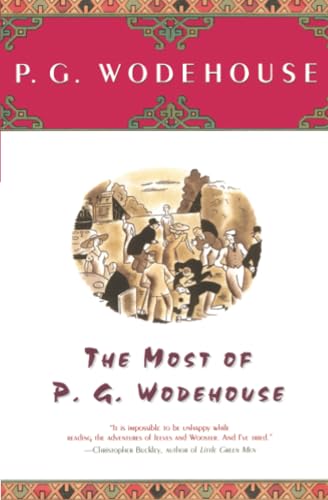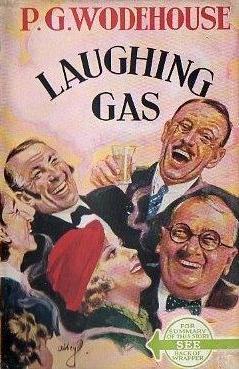
“You have a splendid, chivalrous soul.”
“Not a bit.”
“Yes, you have. You remind me of Cyrano.”
“Who?”
“Cyrano de Bergerac.”
“The chap with the nose?”
“Yes.”
I can’t say I was any too pleased. I felt the old beak furtively. It was a bit on the prominent side, perhaps, but, dash it, not in the Cyrano class. It began to look as if the next thing this girl would do would be to compare me to Schnozzie Durante.
I suppose there must be a time when it would be a mistake to read a P. G. Wodehouse novel, but I can’t think of one offhand. And for this reader, the Jeeves and Wooster stories are supreme. It’s Bertie Wooster’s narration that makes all the difference.
Opinions differ, naturally, on what is the best J&W novel, but I think Right Ho, Jeeves must be in anybody’s top two or three. John Le Carre called it one of his all-time favorite novels. An internet poll in 2009 voted it the best comic novel ever penned by an English writer. Published in 1934, RH,J was Wodehouse’s second full-length Jeeves novel. Critics have noted that these first two books share the common theme of Bertie attempting to assert himself in the face of Jeeves’ intelligence and personality; that element was reduced in later stories. But it can’t have been because it was ineffective as a plot element – it’s irresistible.
When we join our heroes, Bertie has just returned from a holiday in Cannes. He soon clashes with his valet Jeeves over his new dinner jacket – a “white mess jacket with brass buttons” that was all the rage on the Riviera that summer. Bertie insists that he will wear the garment, creating a coldness between master and servant.
So when Bertie gets word that his cousin Angela Travers has broken her engagement to his old friend Tuppy Glossop, he refuses to appeal to Jeeves to solve the problem, but comes up with a plan of his own. Similarly, when his old school chum Gussie Fink-Nottle tells him he can’t work up the nerve to propose to Madeline Bassett (a girl Bertie considers too goopy to live, but just right for the feckless Gussie) he hands him a scheme of his own (based on “the psychology of the individual”).
Needless to say, all Bertie’s plans lead to disaster, and in the end only Jeeves’ fantastic brain can bring about a resolution – a resolution that will involve a considerable amount of discomfort for Bertie himself. One notes a certain refined vindictiveness in Jeeves here, but it’s the affectionate vindictiveness of a parent who wants to teach an errant child a lesson they won’t forget.
No review of Right Ho, Jeeves would be complete without a mention of the classic scene when Gussie, drunk as a lord for the first time in his life, distributes prizes to students at Market Snodsbury grammar school. Here is farce raised to Olympian heights.
What a treat. If you haven’t read Right Ho, Jeeves, do yourself a favor.






